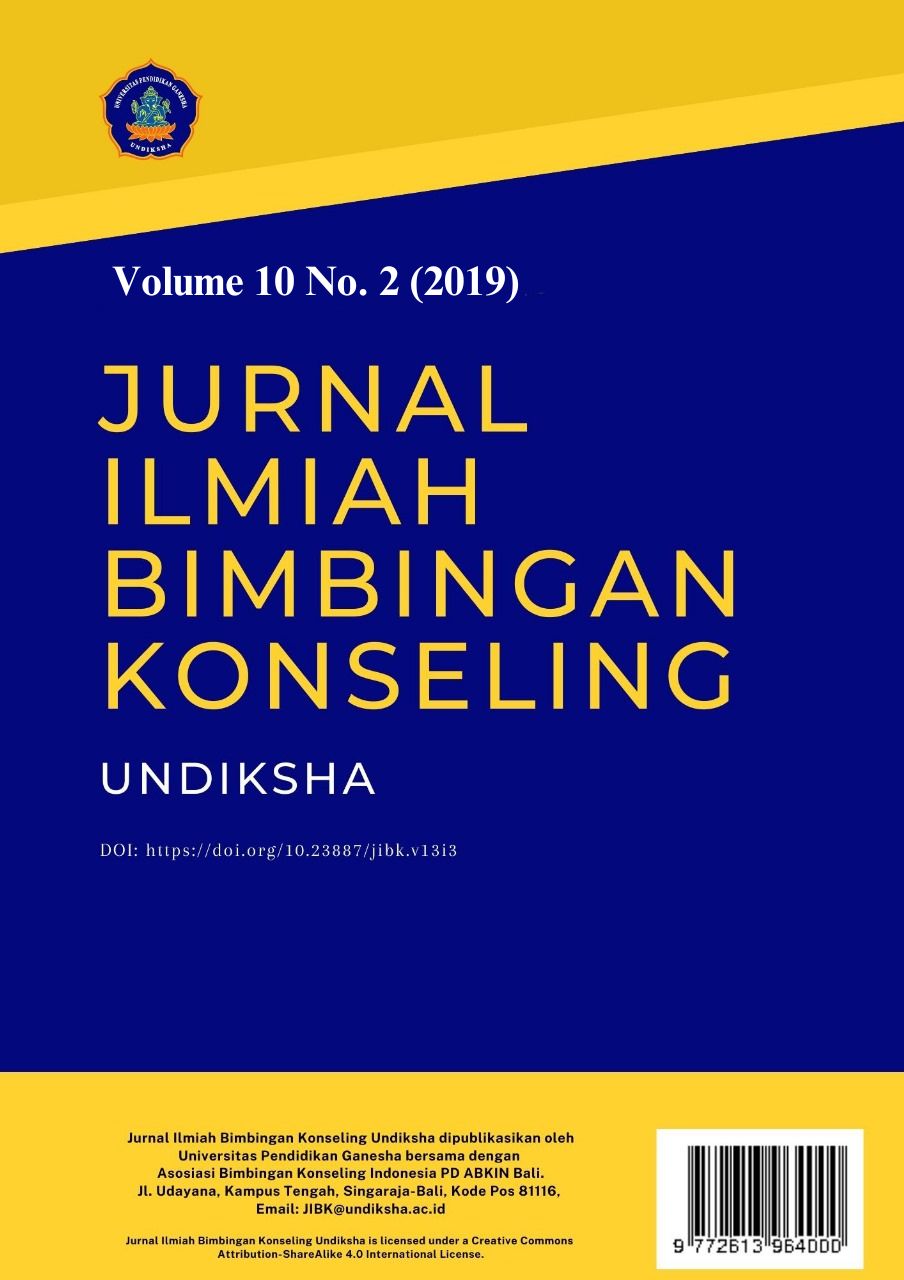Efektivitas Konseling Behavioral dengan Teknik Modeling untuk Meningkatkan Self Autonomy melalui Lesson Study
DOI:
https://doi.org/10.23887/jibk.v10i2.23281Abstract
This research aims to determine the effectiveness of behavioral counselling techniques Modeling to improve Self Autonomy through lesson study in students of class X UPW B SMK N 1 Singaraja. This type of research is research draft of Pseudo experimental population of this study is grade X students smkn 1 Singaraja. Sampling technique uses Random sampling so that the grade X student is acquired by an experimental class of 36 grade X APH A students as a control group amounting to 36 students. The method of analysis used is the ttest test and Efect Size that uses the program JASP 0.7.5.5. Data collection instruments using observations, interviews, diary and questionnaire results based on the results of this study can be recommended that this counselling model is effective to do in the process. Research shows that there is effectiveness of behavioral counseling theory with modeling technique in setting lesson study to improve Self Autonomy class X UPW students.
Keywords: Self Autonomy, Behavioral Counseling, Modeling Techniques, LessonStudy
Downloads
Published
Issue
Section
License
Jurnal Ilmiah Bimbingan Konseling Undiksha is an Open Access Journal. The authors who publish the manuscript in this journal agree to the following terms:
JIBK is licensed under a Creative Commons Attribution 4.0 International License. This permits anyone to copy, redistribute, remix, transmit and adapt the work provided the original work and source is appropriately cited.
This means:
Jurnal Ilmiah Bimbingan Konseling is licensed under a Creative Commons Attribution 4.0 International License.
(1) Under the CC-BY license, authors retain ownership of the copyright for their article, but authors grant others permission to use the content of publications in JIBK in whole or in part provided that the original work is properly cited. Users (redistributors) of JIBK are required to cite the original source, including the author's names, JIBK as the initial source of publication, year of publication, volume number, issue, and Digital Object Identifier (DOI); (2) The authors are the copyright owner of the article, and the author grants the JIBK held the first publication right.










